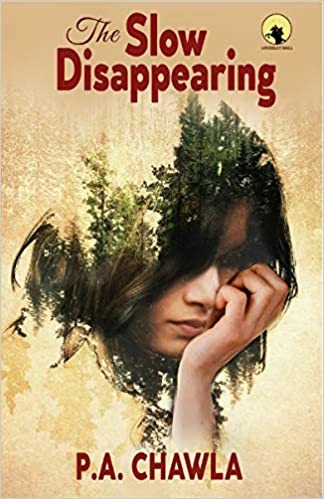Poonam Chawla gives new answers to age-old questions through her book

The Slow Disappearing, by Poonam Chawla, is a deftly crafted plot about a family, both frozen in time and careening into an uncertain future. A mother in the throes of dementia fears the loss of words over the loss of life. The protagonist, trapped in her new role as the reluctant caregiver. A rebel sister who unearths a secret and is forced to close the distance on her past. A son, reeling from abandonment, scrambles for a foothold. With the heart of a poet and the clear eye of a historian, Chawla takes us on a singular journey recording the travels and travails of a family flung across three continents.
Excerpts (Page : 24 to 26) from the book:
‘We need to do something about this situation,’ I said, one day, throwing up my hands when she clogged the garbage disposal with banana peel. ‘She’s not a situation. She’s my mother,’ Adi retorted sharply. ‘I know very well who she is.’ ‘I’m just saying, she can’t help her confusion, she’s old. You don’t have to always be so …’
‘Be so … what?’
He walks out, slamming the door with just the right amount of force, underscoring his disgust without being overtly rude.’Yeah, well, I’m not getting any younger, either,’ I mutter angrily, to myself. We’d scarcely recovered from the kitchen fire, installed new smoke alarms even though the old ones still worked, hid matches and lighters on the top shelf, and generally idiot-proofed the house, when I found her on the floor, unable to get up, her twisted wrist, brittle as a twig, about to break off. Of course, I called 911.
‘What’s your emergency?’
‘My mother-in-law’s fallen off her chair. I think she’s broken a wrist. I’m not sure whether I should move her to see if she has any other injury.’ ‘Is she conscious?’ ‘Yes. She is. But she is in pain.’
I gave the operator, my particulars. She told me to let her stay still. We were to await the first responders.
Then I called Adi. I made her some toast with a sprinkle of powdered sugar and sat beside her on the floor. We sipped our tea out of the large red mugs she seemed to like. She did not say much, silent as a Trappist nun. She accepted the Tylenol without a fuss. It must have helped, because there was a marked change in her demeanour. The lines of disapproval I thought were permanently etched on her face softened visibly, and just for a while, we were two friends sitting companionably, dipping bits of sweetened toast into black tea, regarding each other with quiet affection. When she winced, I became nervous. I started babbling a little.
‘Can I get you something else to eat?’ I asked. Her eyes twinkled with rare humour. ‘A little pani puri would be nice.’ She knew she wasn’t allowed to have any. ‘Mmmmm!’ I said. An image of my old friend, the pani puri vendor, rose sharply in my mind. He was a slender man, nondescript except for a moustache that seemed to cover most of his face. A poor, illiterate man, who spoke in a guttural dialect, had vanished long since from the gentrified suburbs of Mumbai. On his head, he wore a turban. And on the turban sat a metal trunk loaded with sweet, savoury, tangy treasures such as bhel, pani puri and other hot and cold snacks guaranteed to explode in your mouth and whisk you off to a gastronomic heaven.
In his high-pitched voice, he sang out the list of his wares. More often than not, he had to cut short his aria and follow the gesturing servant or my equally high pitched ‘Puriwallah, come, puriwallah, come!’ urging him upstairs from our balcony. Slowly, he climbed the three floors to our apartment, the trunk on his head flattening his turban. He laid his box on the floor, wiped his brows and asked, ‘What will it be, today, baby?’ Then he opened his box. It was the best part of my day.
He gave me an extra puri, that final exquisite bite, because I paid him the compliment of kneeling before his treasures and, with shining eyes, breathed in the heady scents of coriander and tamarind, cumin and mint, as he, smiling shyly, wiped his head with a corner of his turban. Now, as she looked so peaked, I tried distracting Adi’s mother, telling her all about the bhel and pani puri man and those countless moments of street-food bliss. She grunted and asked for a cup of water.

Poonam Chawla was born and raised in Mumbai and knew she wanted to be a writer ever since she held a pen. A longtime resident of the USA, she draws inspiration from her heritage and excels at women and relationships fiction. She enjoys literature, music, and most of all, her children. She has written two other books. Mumbai Mornings – which is now translated into Hindi (2021) by Book Street Publishers and available on Amazon and Flipkart and The shenanigans of Time.



1 Comment
The narrative is thought provoking
Deftly spun
Best wishes for your golden nib